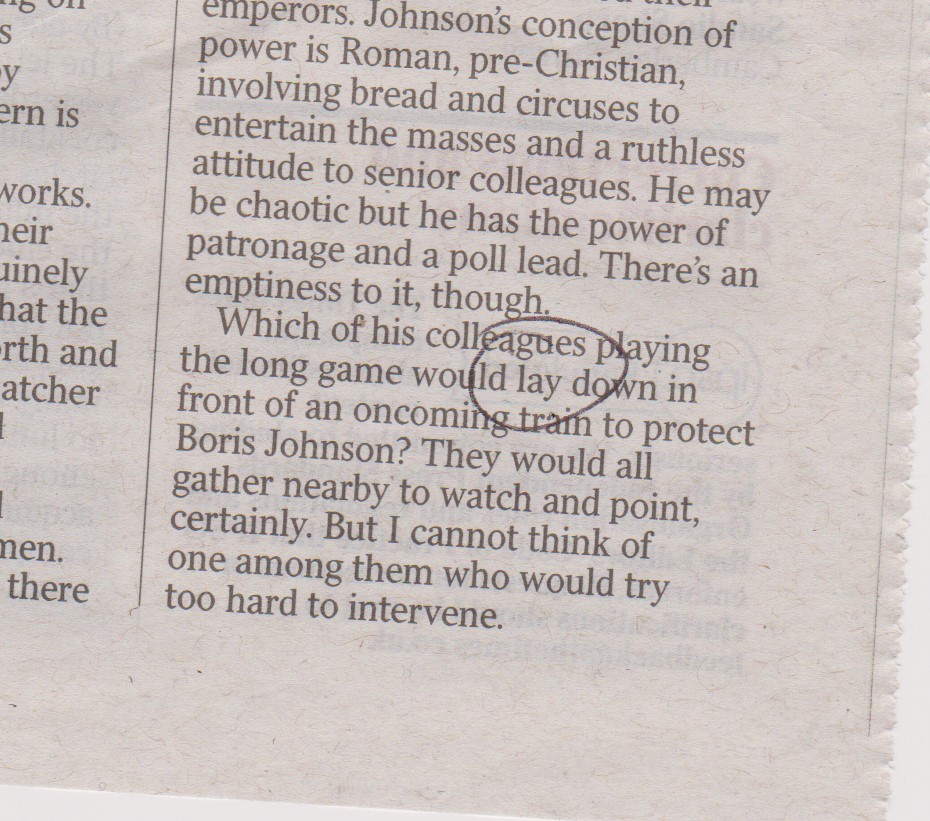
The Times, July 8, 2021
I literally gasped when I saw this shocking piece of ignorance. This is the Times! Whoever let this through or changed it from the correct version should be sacked.
It is essential to know the rules about ‘lie’ and ‘lay’ because if you get it wrong it is as good as having ‘Plonker’ written on your forehead.
This is from Style Matters:
lay: This is the past tense of the verb ‘to lie’ as in ‘I lay on the ground yesterday’ and is also the transitive verb (transitive means it must take an object; it cannot stand alone) ‘to lay’ as in ‘the hen lays eggs’ or ‘I am going to lay the table’. The past tense of ‘to lay’ is ‘laid’. Of course, as everyone knows, ‘lay’ and ‘laid’ are also colloquial sexual expressions and great care must be taken to avoid an inadvertent double meaning. However the chief offence is using ‘lay’ instead of ‘lie’, as in ‘I’m going to lay down’, ‘She is laying on the bed’ or ‘The lion lays in wait for its prey’, or using ‘laid’ instead of ‘lay’, as in ‘He laid on his bed’. To complete the confusion there is the verb ‘to lie’ or tell an untruth. This one is comparatively simple, however.
A brief tour round the tenses:
to lie (as in recline)
present: I lie on the bed, he lies on the bed/I am lying on the bed
past: I lay on the bed, he lay on the ground
participle (with a form of have) I/he/we have/has/had lain on the bed
Note that the word ‘laid’ does not exist in this verb.
to lay (as in to put or place, followed by an object)
present: I lay the table, the hen lays eggs/I am laying the table
past: I laid the table, the hen laid eggs
participle: I/she have/has/had laid the table
Note: this is the only polite use for the word ‘laid’.
to lie (as in to tell an untruth)
present: I lie, he lies/he is lying
past: I/he lied
participle: I/he have/has/had lied